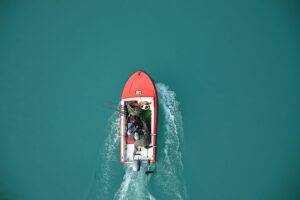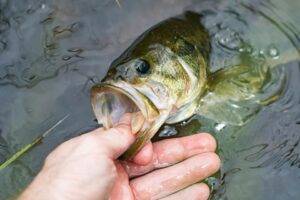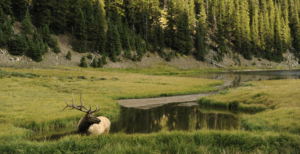

There are certain things you should do to get better at deep sea fishing. You can check out our list of tips by clicking here.
You’ve fished in rivers. You’ve fished in lakes. But now, you’re moving onto the ocean; you’re trying your hand at deep sea fishing. The only problem is: fishing in the ocean is much different from fishing in rivers and lakes. Because of this, you’re not quite sure of what you’re doing. That’s why you’ve come here: you’re looking for help. Fortunately, we can provide it to you. Without further ado,
Here are 5 deep sea fishing tips for you to utilize.
1. Look for Reefs
Big fish eat little fish. Little fish tend to hang around reefs. So, where will you find big fish come dinner time? Around the same reefs in which little fish are hiding. For this reason, when going out on the ocean, you should look for reefs, specifically. Your chances of snagging a big catch by a reef are much greater than snagging one elsewhere.
2. Follow the Birds
While small fish tend to hang out in reefs, they don’t always hang out in reefs. Fortunately, however, there’s another way to locate them. All you have to do is follow the birds. If the seagulls are congregating in a specific area, it’s likely because there are schools of small fish below the surface. And since big fish prey on little fish, there are bound to be big fish there as well.
3. Use a Fish Finder
If you really want to improve your chances of catching a fish, you should bring along a fish finder. This is a GPS-type device that locates large fish in your area. When used correctly, it sets deep-sea fishing to “easy” mode. Most deep-sea rental boats are already equipped with fish finders. However, if you’re taking your own boat out on the water, you can equip it with a fish finder for as little as $100.
4. Study Up on Lures
As you might already know, different fish are attracted to different lures. As such, you can’t use just one.
If you want to be as effective as possible, you need to study up on what’s available to you. Learn the differences between poppers, jigs, plugs, spoons, and other lures so that you’ll know which is best for which occasion.
5. Study Up on Rods
The fish you catch in the ocean will likely be much bigger than the fish you’ve caught in the rivers and lakes. For this reason, to ensure you’re able to bring them in, you’ll need to have a stronger rod than what you would typically use. Study up on the various types of deep-sea fishing rods available, figuring out which types suit which purposes. Each rod is built to catch different types of fish. For instance, these Rainshadow RSU Rod Blanks are designed to catch giant tuna.
Becoming a master of deep sea fishing is far from a simple task. It requires a great deal of skill and knowledge, much more than can be provided by this one article. If you want to take things to the next level, you’ll need additional info. Looking for additional info on deep-sea fishing? You can find it right here on our website. Check out our other articles now!









